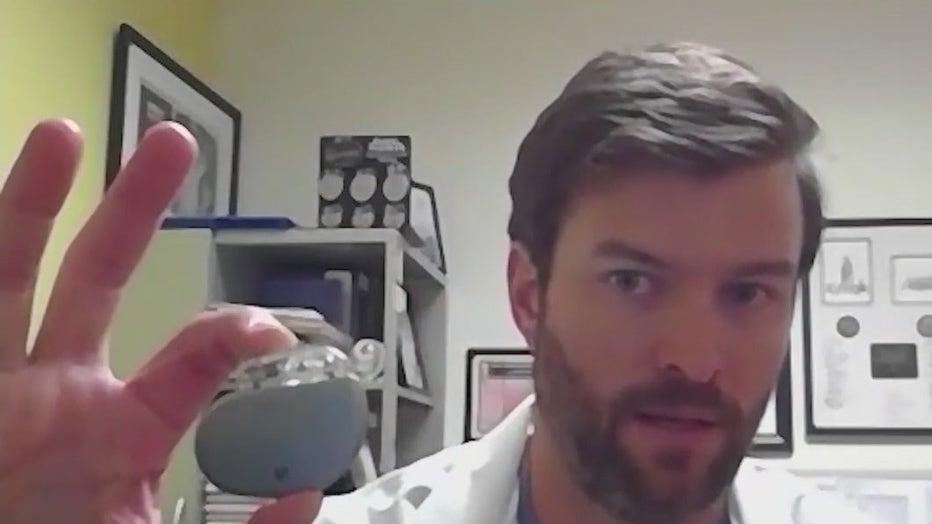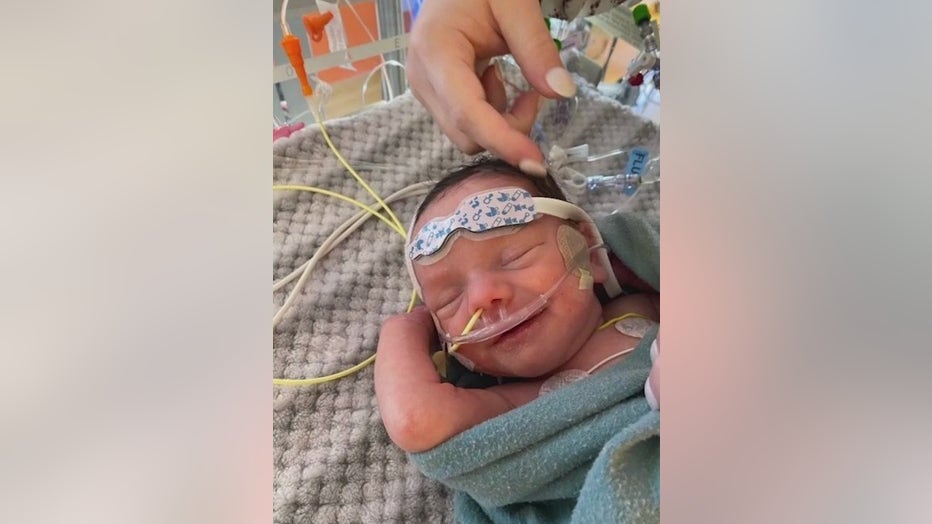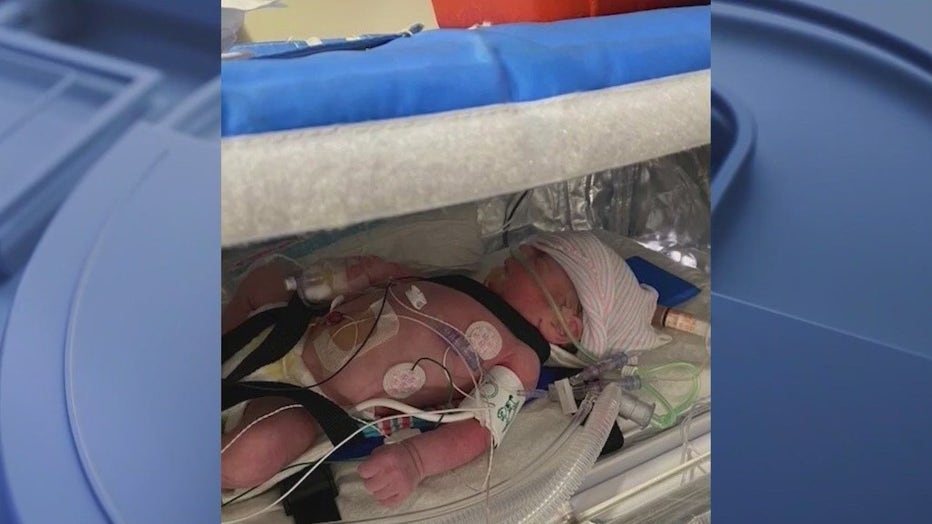Atlanta doctors successfully implant experimental pacemaker in preemie infant
Atlanta premature baby receives experimental pacemaker
An Atlanta mom said the doctors at Children’s Healthcare of Atlanta saved her newborn baby’s life with an experimental implant specially designed for infants.
ATLANTA – A metro Atlanta mom is crediting doctors at Children’s Healthcare of Atlanta with saving her newborn baby’s life after her was born prematurely with a dangerously low heart rate. They successfully implanted an experimental pacemaker inside the child designed specifically for infants. It’s one of a handful of procedures done around the world.
As a nurse and first-time mom with an autoimmune disorder, Amanda Brinker, said learning her son Connor had complete heart block when she was 20 weeks pregnant was any parent’s fear.
“So the top of his heart, his atria, and the bottom of his heart, his ventricles, do not communicate at all which in a fetus it can be life-threatening,” she explained.
“Unfortunately, his heart rate was really low, and he required a medication to be run continuously through an IV to keep his heart rate up even just into the 50s,” Whitehill stated.
With a 50-percent chance they’d be able to carry to term, Brinker told FOX 5 she and her husband turned to doctors at Children’s Healthcare of Atlanta for treatment—in the form of a pacemaker implanted in his chest just days after birth.
“In terms of deciding to get the pacemaker, as hard as it was, you know, it wasn’t much of a decision … that was his best chance, so that’s what we were gonna do,” she recalled.

Dr. Robert Whitehill shows FOX 5 reporter Joi Dukes what a pacemaker for an adult looks like. (FOX 5 Atlanta)
Dr. Robert Whitehill, an electrophysiologist at Children’s, said they try to avoid giving newborns pacemakers because the only FDA-approved option is the same one that an adult would use and could come with complications due to its size. In Connor’s case he needed the surgery to survive after being born at 34 weeks.
“Unfortunately, his heart rate was really low, and he required a medication to be run continuously through an IV to keep his heart rate up even just into the 50s,” Whitehill stated.
Doctors at Children’s had another solution in mind—a much smaller pacemaker for infant children that was not yet FDA approved, but given the ok to implant with an emergency use authorization.
The device allows parents to monitor any issues at home, which Brinker said was a big relief for her family.
Whitehill called the technology a game changer for pediatric care doctors.
“If they had any concerns that something was wrong with Connor, they could send us a check of his pacemaker from home. That’s a pretty big leap forward for our smallest patients.”

Baby Connor smiles for the camera.
At almost 3 months old, Brinker said Connor is doing well and growing—something she is grateful for every day.
“He’s back on the regular newborn track and we’re just keeping up with everything that you would for a normal baby.”
Whitehill told FOX 5 they have since completed a second infant pacemaker implant surgery, which also had no complications, so they hope to do more of the procedure in the future.
No Byline Policy
Editorial Guidelines
Corrections Policy
Source
